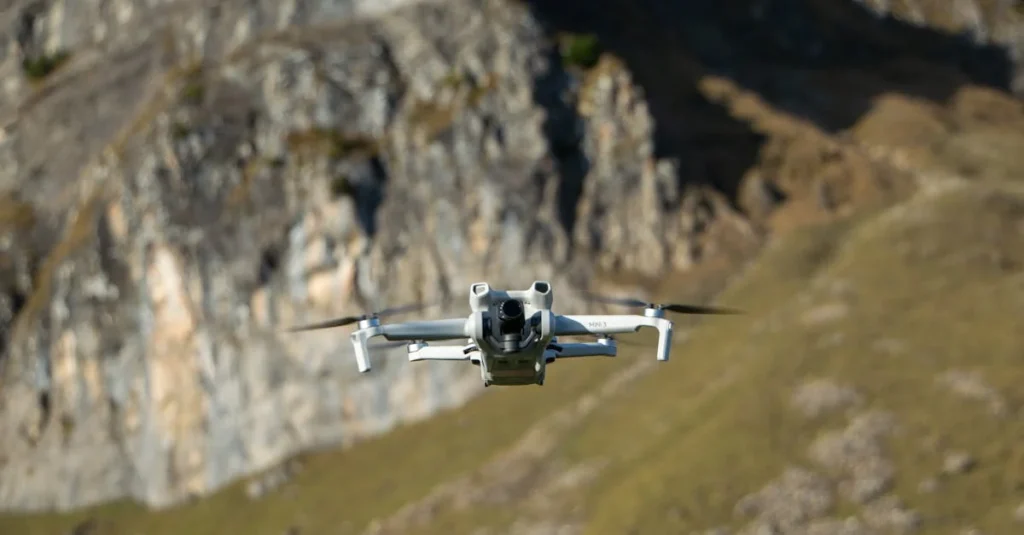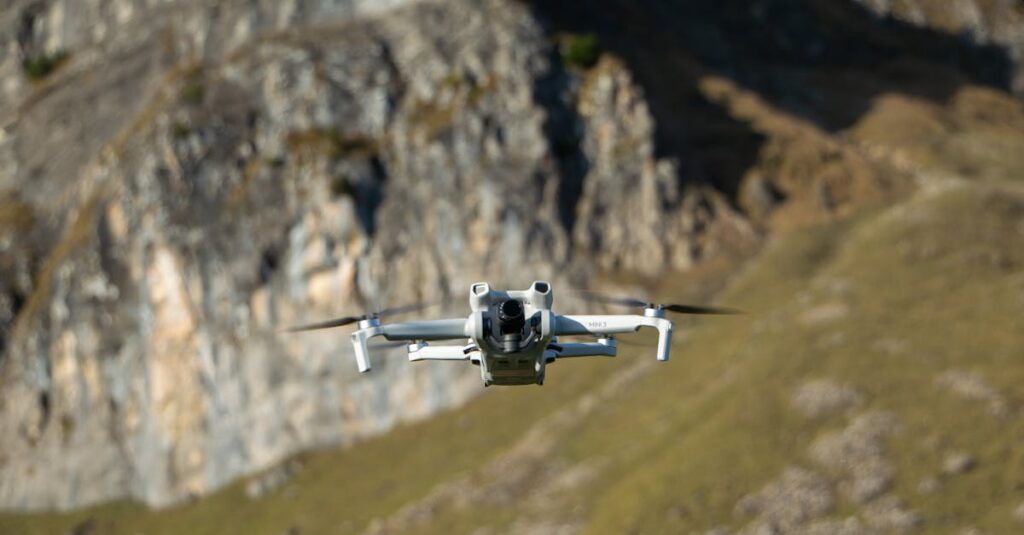In the ever-evolving world of technology, rich tech robotics stands out as a game-changer, shaping industries and redefining possibilities. As I delve into this fascinating realm, I see how these advanced machines aren’t just about futuristic fantasies; they’re becoming integral to our daily lives. From healthcare to manufacturing, robotics is revolutionizing the way we approach complex tasks, offering precision and efficiency like never before.
What excites me most is the potential for innovation and growth. Rich tech robotics isn’t just about creating sophisticated machines; it’s about pushing boundaries and exploring new frontiers. As these technologies continue to advance, they promise to unlock unprecedented opportunities, driving economic growth and enhancing our quality of life. Whether it’s through autonomous vehicles or AI-driven assistants, the impact of robotics is profound and far-reaching.
Key Takeaways
- Rich tech robotics is revolutionizing industries by increasing efficiency, precision, and operational capabilities across sectors such as healthcare, manufacturing, and retail.
- The integration of advanced automation and AI in robotics allows for innovative, customizable solutions that enhance productivity and improve outcomes, especially in complex tasks.
- Key benefits of implementing rich tech robotics include cost savings, heightened operational efficiency, and improved quality of life, contributing to economic growth.
- Challenges such as high development costs, reliability issues, and ethical considerations, including job displacement and data privacy, must be addressed for widespread adoption.
- Despite limitations, rich tech robotics holds the potential to unlock unprecedented opportunities and push the boundaries of innovation and technological advancement.
Rich Tech Robotics
Rich tech robotics represents cutting-edge innovations driving significant industry shifts. These robots, equipped with advanced sensors and AI capabilities, function autonomously and adapt to environments. In healthcare, they perform surgeries with heightened precision, reducing human error and enhancing patient outcomes. For manufacturing, robots streamline operations by automating repetitive tasks, increasing productivity, and lowering operational costs.
Robots aren’t just confined to factories and hospitals; they also impact everyday life. AI-driven assistants, for example, manage tasks and improve efficiency in homes and offices. Autonomous vehicles navigate traffic, reduce accidents, and revolutionize transportation. The integration of these technologies creates opportunities for economic growth and enriches quality of life, pushing the boundaries of innovation.
Key Features Of Rich Tech Robotics
Rich tech robotics bring groundbreaking advancements that improve operational efficiency and adaptability across sectors. Here are some key features that define these innovative machines:
Advanced Automation
Rich tech robots excel in advanced automation, executing complex tasks with high accuracy. They replace repetitive manual labor, optimizing efficiency in industries like manufacturing and logistics. Their ability to perform deterministic processes without fatigue significantly boosts production rates.
AI Integration
AI integration is a defining feature, enabling robots to learn from and adapt to their surroundings. They use machine learning algorithms to make informed decisions, improving their precision over time. In healthcare, AI-driven robotics assist in intricate procedures, enhancing surgical precision and outcomes.
Customizable Solutions
Rich tech robots offer customizable solutions tailored to diverse needs. Businesses can configure them to perform specific functions, ensuring optimal performance in unique environments. Whether in warehouses or offices, these adaptable machines provide flexible support, meeting diverse operational demands.
Applications Of Rich Tech Robotics
Rich tech robotics seamlessly integrate into diverse sectors, driving innovation and efficiency. These advanced systems continue to transform several key industries.
Manufacturing
Rich tech robots automate production lines, enhancing efficiency and precision. In large-scale operations, these robots assemble products, perform quality checks, and package goods. For example, in automobile manufacturing, robots weld car frames with high accuracy. They minimize errors, reduce waste, and significantly increase production speed. By handling hazardous tasks, they also improve workplace safety.
Healthcare
In healthcare, robotics revolutionize patient care and operational efficiency. Surgical robots perform intricate procedures with unmatched precision, which leads to faster recovery times. In hospitals, robotic arms distribute medications, reducing the risk of human error. These systems also manage patient data, streamline administrative tasks, and support telemedicine initiatives.
Retail
Rich tech robotics improve customer experience and logistics in retail. Automated systems manage inventory, track products, and fulfill orders efficiently. For example, in warehouses, robots pick and pack items for shipment. In stores, robotic assistants provide customers with real-time information, guide them to products, and even check out purchases. By optimizing operations, these technologies reduce costs and enhance service quality.
Benefits Of Implementing Rich Tech Robotics
Rich tech robotics significantly enhances operational capabilities. Businesses leveraging these advanced systems witness remarkable improvements across multiple facets.
Increased Efficiency
These robots streamline operations by automating repetitive tasks across industries. In manufacturing, they optimize assembly lines, reducing manual intervention. In retail environments, robots handle logistics more swiftly, ensuring timely delivery. AI-driven robotic systems adapt to various tasks, providing unmatched efficiency.
Cost Savings
Introducing robotics into business processes cuts costs effectively. Automation reduces labor requirements, which lowers expenses associated with employee wages and training. Furthermore, minimizing errors results in decreased waste and defect rates, leading to financial savings in sectors like consumer electronics and automotive manufacturing.
Enhanced Precision
Rich tech robotics offers unparalleled precision in task execution. In healthcare, surgical robots perform intricate procedures with accuracy beyond human capability, improving patient care. In quality control, robotic systems detect flaws in products like semiconductors, ensuring only top-tier items reach consumers. Using these precise tools enhances overall product quality, benefitting diverse industries.
Limitations And Challenges
Rich tech robotics offers transformative benefits but also faces several limitations. One significant challenge is high development and implementation costs. Advanced components, complex software, and skilled labor contribute to these expenses, which may hinder widespread adoption, especially among smaller businesses.
Robots lack human intuition, which presents limitations in unstructured environments. Unlike humans, robots struggle with tasks requiring nuanced decision-making. For instance, in healthcare, surgical robots are highly precise, yet they depend on human oversight to handle unexpected complications.
Reliability and maintenance pose ongoing challenges. As with any technology, rich tech robotics systems may face downtimes due to mechanical failures or software glitches. Ensuring system reliability requires regular maintenance and updates, further adding to operational costs and complexities.
Ethical considerations arise as robotics technology evolves. Concerns include potential job displacement due to automation and data privacy with AI-driven systems. Addressing these issues requires careful planning and policy-making to balance technological advancement with societal impact.
Additionally, regulatory compliance presents a hurdle. Robotics companies must navigate various standards and regulations across industries, which can slow down innovation. Keeping up with evolving legal requirements demands resources and expertise to ensure compliance and safety.
These challenges and limitations underscore the need for strategic planning and prudent resource management in harnessing the full potential of rich tech robotics.
Reshaping Robotics
Rich tech robotics are undeniably reshaping industries and everyday life by offering unprecedented precision and efficiency. Their ability to autonomously adapt and execute complex tasks opens doors to innovation and growth. While challenges like high costs and ethical concerns persist, the potential benefits far outweigh these hurdles. With strategic planning and mindful implementation, we can harness the full power of robotics to drive economic development and improve quality of life. As we continue to explore and refine these technologies, I’m excited about the endless possibilities they present for the future.



